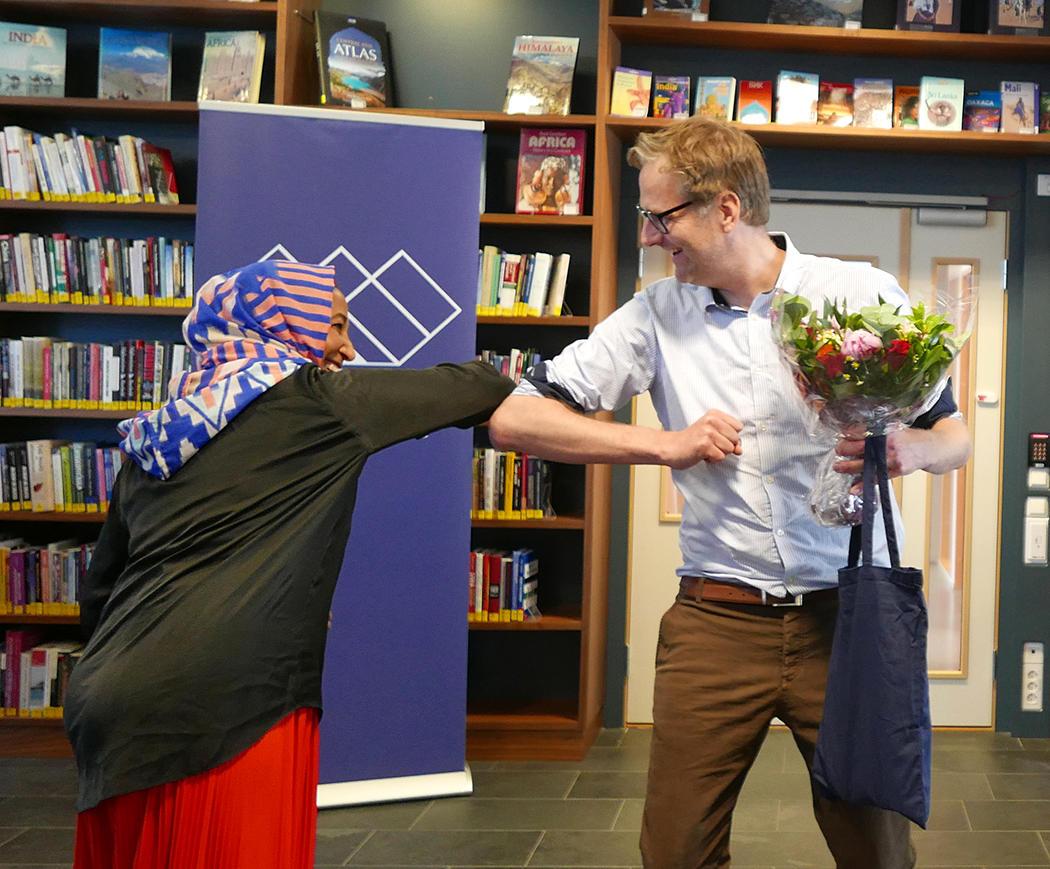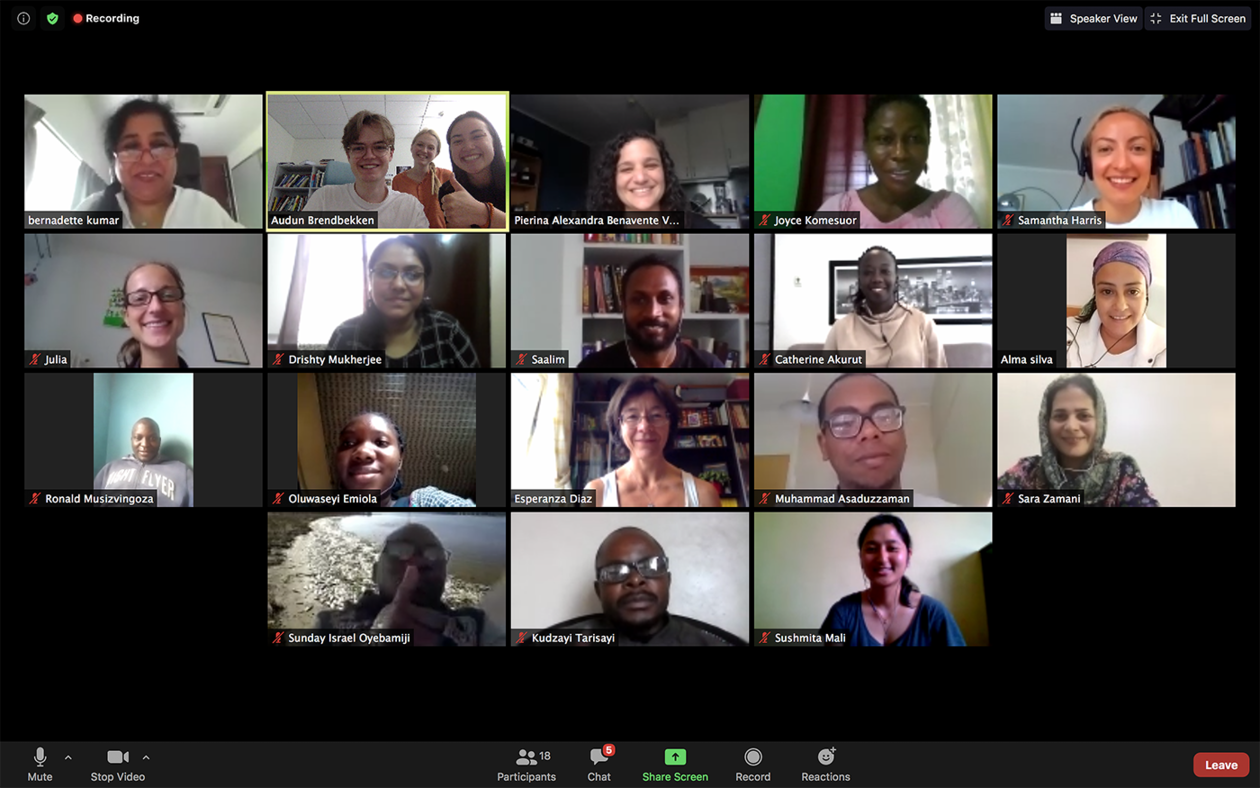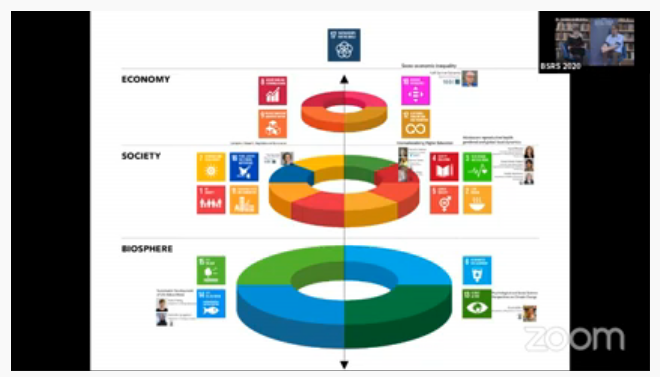BSRS 2020: Making virtual connections for a global community
Research Schools are meant to be dynamic meeting places. For the first time, students attending Bergen Summer Research School (BSRS) 2020 had to manage this digitally. The feedback thus far indicates the experience has gone well.

Main content
2020 involved a new reality for travel and teaching around the world, with many countries implementing partial or total lockdowns as a result of COVID-19. It is a testament to the BSRS team that the Research School was able to be held at all.
"It went fantastically!"
Professor Håvard Haarstad, Scientific Director for BSRS 2020
Annelin Eriksen, UiB’s Vice-Rector for Global Relations, expressed congratulations to the BSRS 2020 team on behalf of the UiB leadership, and on behalf of all the Bergen institutions of higher learning that support BSRS (the Norwegian School of Economics (NHH), the Christian Michelsen Institute (CMI), Western Norway University of Applied Sciences (VHL) and the Norwegian Research Centre AS (NORCE)). She spoke of this year’s success indicating a potential for having digital or blended versions of the Research School in the future.
Bente Moen, the Director of the strategic area, Global Challenges,which hosts BSRS, added that in addition to having a leader with courage, special acknowledgement needed to be given to the multidisciplinary team who worked behind the scenes at this year’s BSRS.
BSRS’ Administrative Coordinator, Howaida Faisal Abdelrahman, underlined that they were lucky to have had Haarstad as this year’s Scientific Director because he was fundamentally interested in the potentials of online education. However, Haarstad, himself, admits that beyond his concerns with the technological challenges, he was worried whether they would be able to engage and motivate the students in the online format. However, the students not only completed the courses, but they were actively engaged in the different online activities and seem to have made meaningful connections. Haarstad says that it has been a lot of fun, and he has certainly learned a lot!
Inter-trans-multi-disciplinarity
The UN Sustainable Development Goals (SDGs) provide concrete targets for actions to address global challenges – but engaging with them requires inter-trans-multi-disciplinary thinking: systems thinking, says Haarstad. We are lucky that UiB supports these kinds of approaches, he adds. In his closing remarks to this year’s Research School, Haarstad encouraged the participating students to actively seek out institutions with this kind of attitude. Such institutions create research environments where there can be positive effects when addressing global challenges. He encouraged the students to bring these important large issues down to the local level, and to have a story / a narrative, which can help them to transfer knowledge from academia to society.
Going digital can be enriching
In March when Norway went into lockdown, the BSRS academic staff were asked if they would consider taking up the challenge to transform BSRS from traditional to digital teaching. Esperanza Diaz, leader for the course on “Determinants of migrants’ health”, admits to having been unsure. She was also concerned about how to optimally engage a global group of students online. However, she was willing to give it a try!
Haarstad congratulates the course leaders for showing tremendous flexibility and for being courageous enough to take on the digital challenge! He felt that the virtual platform actually opened things up for new opportunities. It made it easier for students from remote locations to participate. The students also seemed willing to embrace this year’s digital challenge – there were a record number of participants in the Research School (133 students from 6 continents).
Perhaps it was because around the world, Zoom (and other video conferencing technologies) became the norm for both students and teachers … Perhaps it was because of the hard work and dedication of the course leaders who endeavoured to create varied, inspiring, and engaging pedagogical experiences … Perhaps it was the commitment of resources in terms of technology specialists, a learning design specialist (Laurie Blair), student mentors and teaching assistants … Whatever it was, BSRS 2020 was a success - congratulations to all! The initial evaluation reports from the students indicate that this year’s programme was a positive experience.
Read about the courses for BSRS 2020
Easy access to expertise
Diaz also highlighted an important advantage of being online – it made it possible for some students and some academic experts to attend, who otherwise would not have been able to participate. In her course, for example, some leading figures from her field were able to attend for a short period, giving students a unique opportunity to engage with them in cutting-edge, relevant discussions.
Pierina Benavente, a Master student, and the teaching assistant in Diaz’ course, was impressed with how engaged the students were. She said that group sessions often went on much longer than scheduled. Both Benavente and Diaz felt that the students were inspired and definitely learned things. The group activities established the groundwork for them to build global networks of colleagues.
Devyn Remme, another Master student / teaching assistant, spoke of what an amazing opportunity it had been for her, personally. She learned many skills in terms of technology, communicating and teaching, all of which she will be able to use in her academic career.
Working towards solutions
The final word at the end of BSRS 2020 was given to Katja Enberg, who will be the leader for next year’s Research School. Enberg said that being asked to lead BSRS was a fantastic opportunity. She said that working towards something implies working to solve something. BSRS 2021 will be entitled, “Science and society towards the Sustainable Development Goals”. Enberg imagines 3 pillars to the SDGs: the biosphere, society and economy. Next year’s courses will represent themes from each of these pillars. Enberg sees students next summer working across the courses in inter-disciplinary teams. Watch the BSRS website for updates.
“Using knowledge to change the world”
Katja Enberg, leader BSRS 2021



